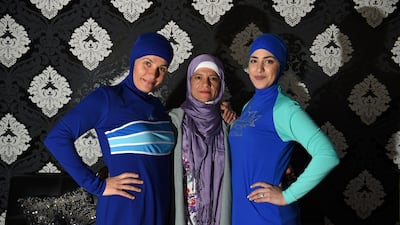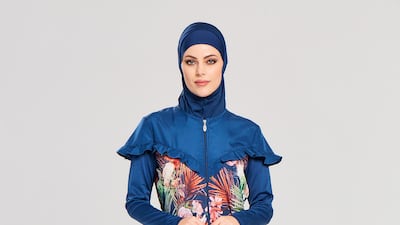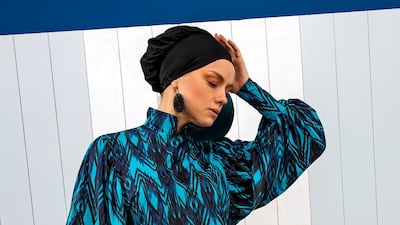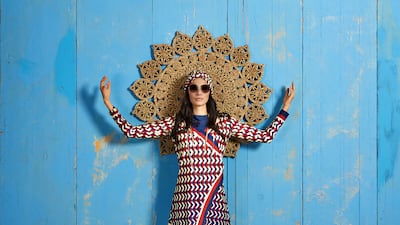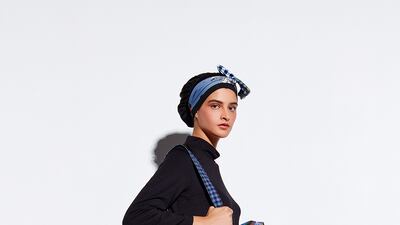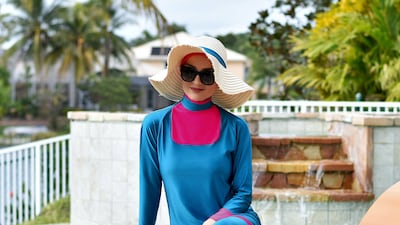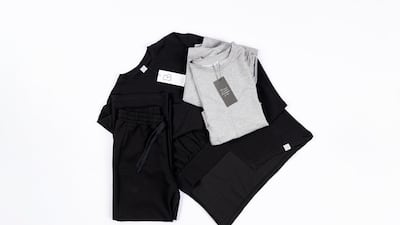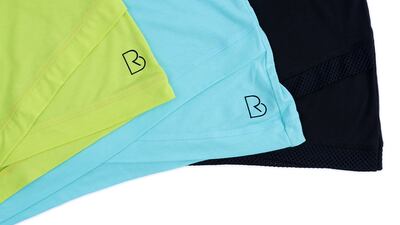In France last Tuesday, the country’s highest court voted to overturn a decision made in Grenoble, a city that contravened its burkini ban and permitted women to wear full-coverage swimwear if they so desired.
Since 2016, burkini bans have been implemented at public pools in France, but after protests from Muslim women, Grenoble’s municipal council voted to suspend the ban last month. France’s Council of State struck down the dispute and reinstated the ban, saying that it could not allow “selective exceptions to the rules to satisfy religious demands”.
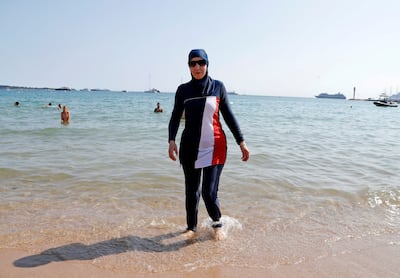
The burkini, as we know it, was founded in 2004 by Lebanese-Australian fashion designer Aheda Zanetti, to provide a garment that would allow Muslim women to enjoy Australia’s beach lifestyle while adhering to their modestwear guidelines.
Since then, it has become the subject of much controversy; France, for instance, which prides itself on secularism, has deemed it a symbol of religious extremism.
Full-coverage swimwear, however, is not always religious — there are a multitude of reasons why women may gravitate towards burkini-style swimsuits for public pool and beach excursions.
Just ask Lindsay Lohan, who wore a burkini while holidaying in Thailand in 2017. Six years prior, British television personality Nigella Lawson caused a stir when she wore a burkini by Muslim brand Modestly Active while on holiday in Sydney.
Chiara Taffarello, the Italian designer behind luxury modest swimwear brand Munamer, which participated in last year’s Dubai Modest Fashion Week, reveals that about 20 per cent of her customers are non-Muslim.
“Many European ladies who have ordered a full-set burkini sometimes don’t use the head cover or even the leggings, but buy it because they need a long-sleeved top that covers up to their half-leg,” she tells The National.
“The need to cover the body is not only motivated by religion, but can also be for health or personal reasons. If you want to preserve the right to go to the beach and the pool for everyone, I believe you can find other solutions and compromises,” says Taffarello, who disagrees with the French burkini ban.
“For scuba diving and other water sports, swimmers often wear suits that require protection from UV rays or the cold,” she explains, pointing out that burkinis provide the same coverage as a surfer’s wetsuit, which remains without stigma in the western world.
The rise of modest fashion, driven largely through social media, has helped to shatter stereotypes about conservative clothing and swimwear. Not only have sports brands such as Nike and adidas jumped on the burkini bandwagon, but luxury labels such as Cynthia Rowley and high-street stores including H&M have also begun designing stylish, long-sleeved swimwear.
The UAE has its own share of modest swimwear design talent, with brands such as Maya and Nur paving the path for stylish burkinis. This spring, Dubai influencer Hadia Ghaleb, who has more than two million followers on Instagram, launched an inclusive swimwear brand, giving burkinis a cool and colourful upgrade.
While the fashion industry may have accepted and embraced modestwear, the image of the Muslim veil — now extended to burkini swimsuits — remains a heated political symbol, especially in France, where the country’s senate voted to ban hijabs on minors last year.
France’s strict swimwear policy, however, doesn’t only target Muslims; it sends a message to all women in the country that if they want to enjoy swimming publicly, they must put their skin on display — a requirement not all women are comfortable with, whether that’s due to personal preferences, skin-related medical issues that make sun exposure dangerous or plain-old body insecurities.
Such stringent swimwear policies, which can come off as Islamophobic, misinterpret burkinis to be a symbol of cultural or religious patriarchy. However, bans that force women to reveal their skin in swimwear, making it more digestible to the “male gaze” —something that has influenced fashion for so long — ironically cater to patriarchal sentiments that keep the focus on women’s bodies.
They also set a dangerous precedent for fellow western nations with regard to the policing of women’s bodies — an occurrence American and European politicians often argue occurs only in the East.
Burkini bans that prevent women from covering their skin while swimming are just as oppressive as forcing women to cover their skin against their will, and cannot be masqueraded as progressive in the 21st century. The vehemence with which such rulings are upheld and enforced should be extremely worrying to proponents of women’s rights, no matter where you float on the burkini debate.
